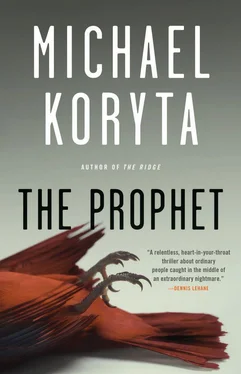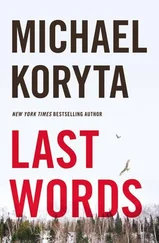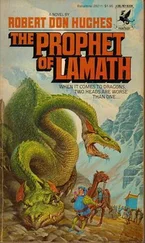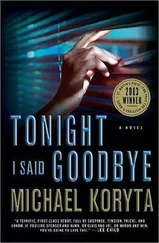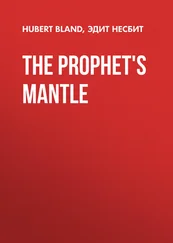For a man who doesn’t believe in defining moments, though, he speaks of his visit with Gideon Pearce as a critical decision, if nothing else.
“It changed some things in me that needed to change,” he says. “Hardest thing I’ve ever had to do. From the decision itself, to the execution of the decision… hardest thing I’ve ever had to do. I knew who he was and what he had done. I knew what my heart called me to do, and I knew what my faith called me to do, and I didn’t like that those things were at odds.”
When he returns to his team after a prison visit, he’ll bring some stories with him. Reminders of good men who made bad decisions.
“To spread my faith among the people who had challenged it seemed imperative,” he says of his mission. “We’ve done good work over the years. We’ve seen men change. I’m proud of that, more proud of that than anything we’ve done on the football field.”
Austin has always made it clear that victories are not the priority of his coaching career. Preparing young men to make the right decisions, to consider the effects of each action and choice, is what the game offers to him.
“This is not a game won by individuals, and it is surely not a game won by selfish choices,” he says. “We’re concerned with the weight of responsibility. We’re concerned with the idea that your individual mistake, your poor decision or poor effort, impacts many more people than yourself. We understand that this is a game of little consequence. We also understand that the lessons of the game are not empty.”
Something else Kent Austin understands is playing through grief. The investigation into his sister’s murder took time. During that time, the Cardinals—Kent was not playing with the varsity squad yet, but Adam Austin was a senior and a star and Kent was on the sidelines as a backup quarterback—reeled off six straight victories and claimed the state championship, the last in school history. Tributes to Marie Austin were made before every game. Players wore her initials on their jerseys. Fans lifted signs bearing her name in the stands. Moments of silence were held.
“Of course it meant a great deal,” Austin says. “The team, the community, they meant a great deal to us as a family.”
Now, as this current undefeated team pursues its first title since that year, its head coach says that he hopes the community is prepared to respect the wishes of Bond’s mother.
“That’s a family choice,” he says. “We are all thinking of Rachel, and the family, we are praying for them. We will not confuse the game of football with the realities of life, however. Our scoreboard does not alter anything, our scoreboard is of no consequence. I don’t think anyone’s mind is on football right now. What we as a coaching staff are not concerned with is what happens on Friday night. We are concerned with helping these young men cope with a tragedy.”
There is no one more prepared to offer that help than Kent Austin.
10
ADAM HAD TURNED OFF his cell phone after the first dozen calls from reporters. His own house was probably crawling with media by now, but they hadn’t found Chelsea’s—not yet at least. He lay on his back with her curled against his chest, her long dark hair cascading over his neck and the side of his face, and through the open bedroom door he watched the snakes shift in their boxes. Cheap plastic tubs, slid into homemade wooden shelves that were just tight enough to provide air while still keeping them in.
Most of the time. There had been an escape or two.
In the room that should have been the pantry was a large cage of rats. The python food of choice. Chelsea handled their care while her husband was in jail. She liked the rats more than the snakes, she said, but her responsibility was to the snakes.
Adam thought that was a hell of an unpleasant loyalty to have to pick.
His own house, the home he’d grown up in, was meticulously tidy. Adam was regimented; in that way he was not so far from his famous little brother across town. He got his hair cut every ten days, he ironed every shirt, he refused to leave the office with any loose paperwork on the desk. All of that bled over and into the house, where no dishes were ever left in the sink, where weeds did not encroach on flowerbeds and grass clippings were always blown back toward the lawn and not out to the sidewalk. Maybe it would have been this way anywhere he lived, but he had lived in only one place, and that was Marie’s home. Something Adam had come to understand was that nobody ever left a true home, so it was still Marie’s home. Still Kent’s, too, and sometimes he thought it was a shame that Kent would no longer visit the house, but Kent had another home now. Marie, like Adam, did not and would not. So he tended it carefully, because he did not want to dishonor her.
Chelsea’s house was a different matter. Travis Leonard’s house. Dirty dishes gathered and waited until Adam washed them whether he’d used them or not, the carpet carried ancient stains, cobwebs hung like décor in the corners of the ceilings. In the bathroom, where lime and mold were thick enough to be approached with a chisel, a long strip of flypaper dangled in the summer months, covered with dead bugs.
She took care of the snakes and the rats, kept their cages clean, but the rest of the house seemed to escape her attention. Her own condition was always flawless—marred, perhaps, some might think, by the many tattoos and piercings, but that was a personal preference, and what no one could argue with was the sheen she had, from hair to teeth to body, every ounce of her polished.
In this, Adam saw only what he already understood about his own home. You didn’t leave it behind. You just carried it with you into new places. Chelsea at thirty-nine was more similar to Chelsea at seventeen than she would like to admit. A creature of organized beauty in a home of chaos, owned by an inmate.
She had not asked him about the police. Had not asked him about Rachel, hadn’t asked him a thing. She would let him speak of it when he chose, or she would force him to when needed, but she would never press ahead of time.
He waited until the evening shadows had lengthened enough to keep him from making out the coiled bodies and flickering tongues inside those milky-white plastic tubs, and then he slid out from under her and dressed. She opened her eyes, watched him.
“You’ll be back?”
He nodded.
“Should I know where you’re going?”
He shook his head.
She turned away from him then. Had her eyes on the headboard as he slipped out of the bedroom, walked to the front door, and exited, car keys in hand. The only thing that had kept Adam from the house at Shadow Wood until sunset was the knowledge that police would be there, processing the scene. By now he hoped it was done. They’d have had all day, the news crews would have taken their footage, the photographers would have snapped their pictures. It was dark now, the way it had been when she arrived, and they would have left.
He hoped. If not, it would make for an uncomfortable scene, but he needed to see the place for himself. See where he had sent her.
The drive wasn’t long. Northeast out of town and winding along Lake Erie, then dipping south, into the woods. Another six miles and he caught a road sign just in time to bring his Jeep to a fishtailing stop and make the turn onto a gravel road. Shadow Wood Lane. PRIVATE RESORT PROPERTY, boasted an ancient sign, pocked with rounds from a .22.
Maybe it had once been a resort, but those days were well past. Adam had trouble imagining that even in the summer this place was much more than a haven for drunks who wanted to have a rollicking white trash party somewhere secluded enough that police were unlikely to disturb them. The lake was coated with leaves, dead cattails clogging the south shore, the northern shore lined with decrepit cottages. They were probably fifty years old and perhaps repainted once since their original construction. The docks tilted, and anyone who ventured down them barefoot would quickly have enough splinters to impress a porcupine. Adam parked and walked down an overgrown path to the cabins on the opposite shore, carrying a flashlight but leaving it off, the gloaming enough for him to see all that he cared to see. He was feeling a chill that had nothing to do with the wind, imagining Rachel Bond making these same steps, walking toward the same place. Had she been fearful? Of course. But she had been determined, too. And brave. And armed with an address.
Читать дальше
